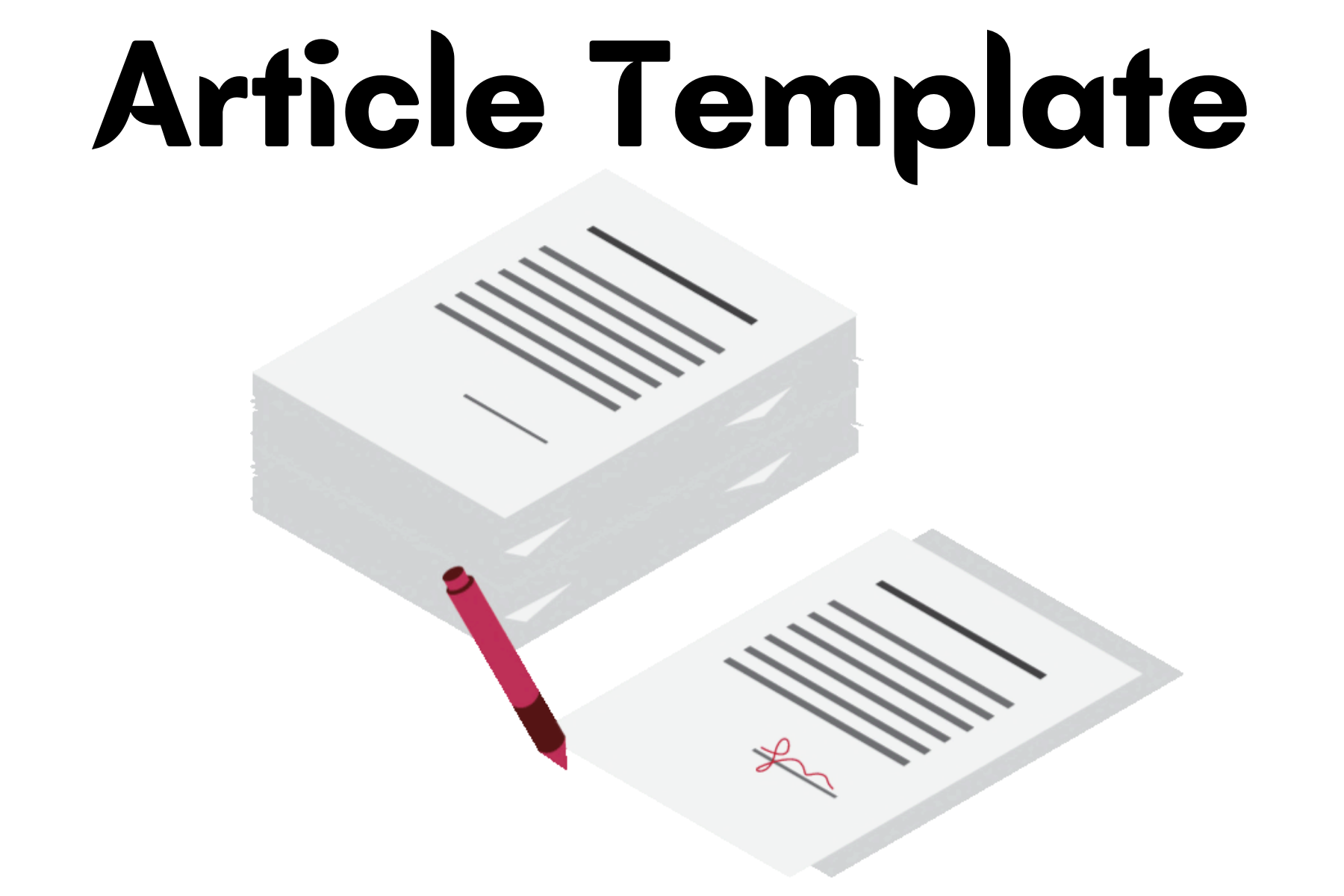The Pedagogical Role of ICT on Computational Thinking in Learning Mathematics: A Systematic Review of Scopus Database
DOI:
https://doi.org/10.18326/hipotenusa.v6i2.1964Kata Kunci:
Computational Thinking, K-12, ICTAbstrak
The systematic review literature on the integration of computational thinking in learning mathematics at K-12 mathematics education showed that student-centered teaching approaches can bridge computational thinking and mathematics. However, studies on the role of ICT in improving the quality of learning and the integration of computational thinking in supporting the academic ability of K-12 students are still little reviewed in the current literature. In an effort to fill this gap, a systematic review of the pedagogical role of ICT in asssisting the improvement of students’ computational thinking in K-12 mathematics learning needs to be conducted. This study analyzed 14 studies from the Scopus database that met the inclusion requirements. The PRISMA protocol was used to assess the 14 studies reviewed. The results of this research are that several ICT tools effectively enhance students' CT in mathematics education, including augmented reality, digital gamification technology, robots, tablets, ePCR devices, online platforms for algorithm-based tasks, and problem-based programming. These studies recommend integrating these ICT tools into standard mathematics curricula, with careful design of learning activities, appropriate to students' developmental levels, and supported by adequate teacher training.
Referensi
Angraini, L. M., Yolanda, F., & Muhammad, I. (2023). Augmented Reality: The Improvement of Computational Thinking Based on Students’ Initial Mathematical Ability. International Journal of Instruction, 16(3), 1033–1054. https://doi.org/10.29333/iji.2023.16355a
Araya, R. (2021). Enriching elementary school mathematical learning with the steepest descent algorithm. Mathematics, 9(11). https://doi.org/10.3390/math9111197
Badawi, A., Herman, T., & Juandi, D. (2023). Pedagogical Content Knowledge Analysis of Mathematics Teachers in Developing Lesson Plans on Ratio Topic. Hipotenusa : Journal of Mathematical Society, 5(1), 29–43. https://doi.org/10.18326/hipotenusa.v5i1.8934
Bouck, E. C., & Yadav, A. (2022). Providing Access and Opportunity for Computational Thinking and Computer Science to Support Mathematics for Students With Disabilities. Journal of Special Education Technology, 37(1), 151–160. https://doi.org/10.1177/0162643420978564
Cui, Z., Ng, O. lam, & Jong, M. S. Y. (2023). Integration of Computational Thinking with Mathematical Problem-based Learning: Insights on Affordances for Learning. Educational Technology and Society, 26(2), 131–146. https://doi.org/10.30191/ETS.202304_26(2).0010
Cuny, J., Snyder, L., & Wing, J. M. (2010). Computational Thinking: What and Why?
Dahal, N., Manandhar, N. K., Luitel, L., Luitel, B. C., Pant, B. P., & Shrestha, I. M. (2022). ICT tools for remote teaching and learning mathematics: A proposal for autonomy and engagements. Advances in Mobile Learning Educational Research, 2(1), 289–296. https://doi.org/10.25082/AMLER.2022.01.013
Jin, Y., Wheeler, R., & Bosarge, E. (2022). A Mixed-method Cluster Analysis of Physical Computing and Robotics Integration in Middle-Grade Math Lesson Plans. Computers and Education, 190(3), 104623.
Kaup, C. F., Pedersen, P. L., & Tvedebrink, T. (2023). Integrating computational thinking to enhance students’ mathematical understanding. Journal of Pedagogical Research, 7(2), 127–142. https://doi.org/10.33902/JPR.202318531
Lecca, S. M. V., Chávez, J. A. M., Torres, R. J. B., Malca, W. A. H., Quispe, W. W. C., & Egusquiza, R. C. (2024). Math Gamification and ICT for University Learning: Systematic Review Article. International Journal of Religion, 5(1), 218–236. https://doi.org/10.61707/j5c9ts33
Lewis Presser, A. E., Young, J. M., Rosenfeld, D., Clements, L. J., Kook, J. F., Sherwood, H., & Cerrone, M. (2023). Data collection and analysis for preschoolers: An engaging context for integrating mathematics and computational thinking with digital tools. Early Childhood Research Quarterly, 65, 42–56. https://doi.org/10.1016/J.ECRESQ.2023.05.012
Martin, D. A., Curtis, P., & Redmond, P. (2024). Primary school students’ perceptions and developed artefacts and language from learning coding and computational thinking using the 3C model. Journal of Computer Assisted Learning. https://doi.org/10.1111/jcal.12972
Msafiri, M. M., Kangwa, D., & Cai, L. (2023). A systematic literature review of ICT integration in secondary education: what works, what does not, and what next? Discover Education, 2(1). https://doi.org/10.1007/s44217-023-00070-x
Muhammad, I., Rusyid, H. K., Maharani, S., & Angraini, L. M. (2023). Computational Thinking Research in Mathematics Learning in the Last Decade: A Bibliometric Review. International Journal of Education in Mathematics, Science and Technology, 12(1), 178–202. https://doi.org/10.46328/ijemst.3086
Mukhibin, A., & Juandi, D. (2023). The Implementation of Computational Thinking on Mathematics Learning Research: A Systematic Literature Review. Hipotenusa : Journal of Mathematical Society, 5(1), 82–94. https://doi.org/10.18326/hipotenusa.v5i1.9007
Nur, A. S., Marlissa, I., Kamariah, K., Palobo, M., & Ramadhani, W. P. (2021). Mathematics education research in Indonesia: A scoping review. Beta: Jurnal Tadris Matematika, 14(2), 154–174. https://doi.org/10.20414/betajtm.v14i2.464
OECD. (2023). PISA 2022 Assessment and Analytical Framework. OECD. https://doi.org/10.1787/dfe0bf9c-en
Osipovskaya, E. A., Pshenichny, N. G., & Kharakhordina, M. V. (2021). Using technologies to design personalized learning pathways as a part of scientific practice of students. RUDN Journal of Informatization in Education, 18(3), 203–211. https://doi.org/10.22363/2312-8631-2021-18-3-203-211
Page, M. J., McKenzie, J. E., Bossuyt, P. M., Boutron, I., Hoffmann, T. C., Mulrow, C. D., Shamseer, L., Tetzlaff, J. M., Akl, E. A., Brennan, S. E., Chou, R., Glanville, J., Grimshaw, J. M., Hróbjartsson, A., Lalu, M. M., Li, T., Loder, E. W., Mayo-Wilson, E., McDonald, S., … Moher, D. (2021). The PRISMA 2020 statement: An updated guideline for reporting systematic reviews. In The BMJ (Vol. 372). BMJ Publishing Group. https://doi.org/10.1136/bmj.n71
Park, W., & Kwon, H. (2022). RESEARCH TRENDS AND ISSUES INCLUDING COMPUTATIONAL THINKING IN SCIENCE EDUCATION AND MATHEMATICS EDUCATION IN THE REPUBLIC OF KOREA. Journal of Baltic Science Education, 21(5), 875–887. https://doi.org/10.33225/jbse/22.21.875
Putri, Y. F., Kadir, K., & Dimyati, A. (2022). Analysis of Content Validity on Mathematical Computational Thinking Skill Test for Junior High School Student Using Aiken Method. Hipotenusa : Journal of Mathematical Society, 4(2), 108–119. https://doi.org/10.18326/hipotenusa.v4i2.7465
Putrie, S. N., & Syah, M. N. S. (2023). Development of 3D Math AR Applications as Mathematics Learning Media Augmented Reality Based. Hipotenusa : Journal of Mathematical Society, 5(1), 72–81. https://doi.org/10.18326/hipotenusa.v5i1.6401
Rafiepour, A., & Farsani, D. (2021). Cultural historical analysis of iranian school mathematics curriculum: The role of computational thinking. Journal on Mathematics Education, 12(3), 411–426. https://doi.org/10.22342/JME.12.3.14296.411-426
Robledo-Castro, C., Castillo-Ossa, L. F., & Hederich-Martínez, C. (2023). Effects of a computational thinking intervention program on executive functions in children aged 10 to 11. International Journal of Child-Computer Interaction, 35, 100563. https://doi.org/10.1016/J.IJCCI.2022.100563
Rodríguez-Martínez, J. A., González-Calero, J. A., & Sáez-López, J. M. (2020). Computational thinking and mathematics using Scratch: an experiment with sixth-grade students. Interactive Learning Environments, 28(3), 316–327. https://doi.org/10.1080/10494820.2019.1612448
Santamaría-Cárdaba, N., Martins, C., & Sousa, J. (2021). Mathematics Teachers Facing the Challenges of Global Society: A Study in Primary and Secondary Education in Spain. Eurasia Journal of Mathematics, Science and Technology Education, 17(4), 1–9. https://doi.org/10.29333/ejmste/10806
Sezer, H. B. (2022). The Integration of Computational Thinking in Mathematics The Integration of Computational Thinking in Mathematics Education: The Current State of Practices in School, Outreach, and Education: The Current State of Practices in School, Outreach, and Public Educational Settings Public Educational Settings. https://ir.lib.uwo.ca/etdhttps://ir.lib.uwo.ca/etd/8498
Sezer, H. B., & Namukasa, I. K. (2021). Real-world problems through computational thinking tools and concepts: the case of coronavirus disease (COVID-19). Journal of Research in Innovative Teaching and Learning, 14(1), 46–64. https://doi.org/10.1108/JRIT-12-2020-0085
Sırakaya, D. A. (2020). Investigating computational thinking skills based on different variables and determining the predictor variables. Participatory Educational Research, 7(2), 102–114. https://doi.org/10.17275/per.20.22.7.2
Soboleva, E. V., Sabirova, E. G., Babieva, N. S., Sergeeva, M. G., & Torkunova, J. V. (2021). Formation of Computational Thinking Skills Using Computer Games in Teaching Mathematics. Eurasia Journal of Mathematics, Science and Technology Education, 17(10), 1–16. https://doi.org/10.29333/ejmste/11177
Sohr, E. R., Gupta, A., Elby, A., & Radoff, J. (2023). How a child entangles empathy and computational thinking in reasoning about fairness. Early Childhood Research Quarterly, 65, 92–101. https://doi.org/10.1016/J.ECRESQ.2023.05.010
Sung, W., Ahn, J., & Black, J. B. (2017). Introducing Computational Thinking to Young Learners: Practicing Computational Perspectives Through Embodiment in Mathematics Education. Technology, Knowledge and Learning, 22(3), 443–463. https://doi.org/10.1007/s10758-017-9328-x
Sung, W., & Black, J. B. (2020). Factors to consider when designing effective learning: Infusing computational thinking in mathematics to support thinking-doing. Journal of Research on Technology in Education, 53(4), 404–426. https://doi.org/10.1080/15391523.2020.1784066
Timotheou, S., Miliou, O., Dimitriadis, Y., Sobrino, S. V., Giannoutsou, N., Cachia, R., Monés, A. M., & Ioannou, A. (2023). Impacts of digital technologies on education and factors influencing schools’ digital capacity and transformation: A literature review. Education and Information Technologies, 28(6), 6695–6726. https://doi.org/10.1007/s10639-022-11431-8
Valovičová, L., Ondruška, J., Zelenický, L., Chytrý, V., & Medová, J. (2020). Enhancing computational thinking through interdisciplinary steam activities using tablets. Mathematics, 8(12), 1–15. https://doi.org/10.3390/math8122128
Wang, C., Chen, X., Yu, T., Liu, Y., & Jing, Y. (2024). Education reform and change driven by digital technology: a bibliometric study from a global perspective. In Humanities and Social Sciences Communications (Vol. 11, Issue 1). Springer Nature. https://doi.org/10.1057/s41599-024-02717-y
Xu, W., Geng, F., & Wang, L. (2022). Relations of computational thinking to reasoning ability and creative thinking in young children: Mediating role of arithmetic fluency. Thinking Skills and Creativity, 44, 101041. https://doi.org/10.1016/J.TSC.2022.101041
Zhang, S., & Wong, G. K. W. (2023). Exploring the underlying cognitive process of computational thinking in primary education. Thinking Skills and Creativity, 48, 101314. https://doi.org/10.1016/J.TSC.2023.101314
Unduhan
Diterbitkan
Cara Mengutip
Terbitan
Bagian
Lisensi
Hak Cipta (c) 2024 Alberta Parinters Makur, Darhim, Bambang Avip Priatna Martadiputra

Artikel ini berlisensiCreative Commons Attribution-NonCommercial-ShareAlike 4.0 International License.

This work is licensed under a Creative Commons Attribution-ShareAlike 4.0 International License.





